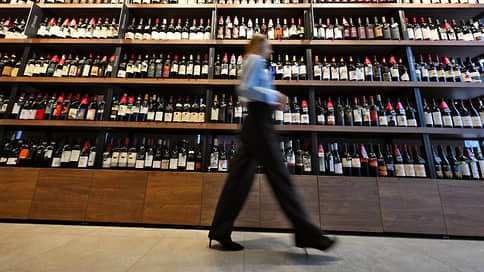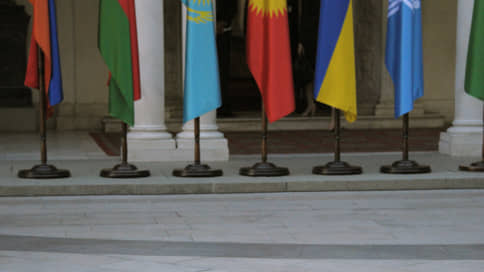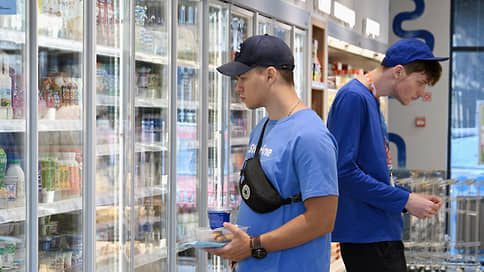What exchange rate to use when determining the customs value of goods

The Ministry of Finance recommended customs to use a two -stage method to determine the cost of products imported into the country. If the costs of delivery are indicated in foreign currency, but are paid in rubles, then the distributors need to take into account the Central Bank at the time of import of goods. And the costs made after the import of products to the country are already taken into account at the rate on the date of registration of the customs declaration. Alcohol distributors, in which difficulties began in the first place, are afraid of problems with the workflow and the risks of overpayments, especially under contracts where payments are stretched over time. Customs promises to find a uniform approach to determining the value of goods.
At the disposal of Kommersant was a letter sent by the director of the Department of Customs Policy and the regulation of the alcohol and tobacco markets of the Ministry of Finance of the Russian Federation Nikita Zolkin to the Federal Customs Service (FCS) with explanations which exchange rate to use the customs value of goods. It follows from it that if expenses are paid in rubles, but under the contract they are indicated in foreign currency, then to calculate the cost of imported products, you need to take into account the price of the Central Bank at the time of import of goods. For the costs made after the import of goods to Russia, recalculation in rubles takes place at the rate on the date of registration of the declaration, the letter is noted. This, as a rule, may be payment on the fact of logistics services and the support of customs procedures when importing goods into the country. The FCS confirmed Kommersant that they brought a message received from the Ministry of Finance to the customs authorities. The ministry was not provided with comments.
Due to the new calculation method, according to the head of the customs and logistics operator of the KW Yulia Shlenskaya, most importers began to difficulties. In fact, explains Konstantin Bondarenko, deputy general director of BMJ-Logistics, « according to the new rules, the customs value of the cargo is formed as the sum of two parts calculated for different courses. » In the case of long -term contracts with a large number of deliveries and payments, the identification of a specific payment related to a certain delivery becomes extremely difficult, the expert claims.
It is no coincidence that the Ministry of Finance gave the Ministry of Finance, which oversees the alcoholic and tobacco market, since the difficulties were the first to be the first to import into Russia from abroad, including wine and strong drinks.
Russia reduced the import of wine-making products by 51% in the first quarter of 2025 compared to the same period of 2024, the deputy head of the FCS Sergey Shklyaev reported on April 15 on a round table in the Federation Council.
Alcohol imports to Russia in 2024 decreased to 99 million from 102 million in 2023, before that, in an interview with Rosulkoltabakcontrol, Igor Aleshin, the head of Rosalkolletabakcontrol, spoke.
Director of the Wine-Torgovaya company Fort Daria Sologub does not exclude that the industry companies may have certain difficulties with document management. On the other hand, she continues, some banks working with Russian companies, including foreign ones, switched to payment in rubles. In this case, it is required to conclude an additional agreement fixing the exchange rate, agreed by both parties, she explains. If such an agreement is submitted to the customs authorities, then there are no issues with the customs clearance of imported goods, notes Mrs. Sologub.
Nevertheless, the expert notes, such a scheme works only for prepaid orders: “If the goods are paid in fact, then in the contract it is necessary to foresee that it is made on the day of import, as the customs requires.” Because of this, Daria Sologub continues, a conflict arises between European and Russian legislation: in the EU, where B enters nowOThe most imported wine is counted on payment on the day of the settlement document, and in Russia – on the day of import and passage of customs procedures. In Ladoga (manufacturer and alcohol distributor) noted that these difficulties are faced with mainly those who pay for the goods purchased abroad.
Enterprise Legal Solutions CEO Anna Barabash notes: in the situation, importers have significant risks of overpayment, which will expected to increase prices imported from abroad for end consumers. “Now the volatility of the ruble is such that the difference in the cost of imported goods can grow by 10% or more literally in a few days,” Mrs. Barabash notes, adding that such a market situation deprives the distributors of understanding what losses they will suffer as a result. According to the lawyer, importers may try to challenge the decision of the customs authority in court, but due to the availability of legislative gaps in this situation, the court is unlikely to support them, she concludes.
However, it is possible that the situation may be resolved. The FCS in the official Telegram channel reported that on April 25, an extraordinary meeting of the profile permanent commission was held to determine the uniform approach to determining the customs value of goods.







